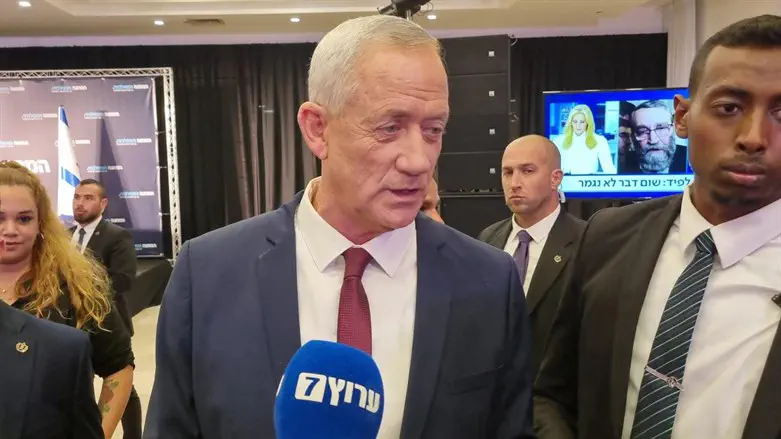
Defense Minister and Chairman of the National Unity Party Benny Gantz delivered remarks this evening at the opening gala night and Hannukah candle-lighting ceremony of the annual Jewish Media Summit.
The summit, hosted by the Ministry of Diaspora Affairs, Government Press Office and the Ministry of Foreign Affairs, was attended by over 100 reporters representing Jewish media platforms from around the world.
Minister Gantz commented on Israel's ties to the diaspora as well as on the recent elections in Israel: "The ties that were forged between us over 3,000 years ago, are stronger than any single leader, government, or event. It is the responsibility of both the government of Israel and Jewish leaders around the world to recognize and integrate all the streams of Judaism. Only united, can we ensure our continuity and our resilience in Israel and around world."
He added: "Having said this, today the situation in Israel is clear. We find ourselves after elections and it’s clear that I do not support the policies that the future government is already promoting. At the same time, I respect the democratic process and the results of this process in Israel – the only true democracy in the Middle East region. Our partners and friends, however entitled to their opinions, should not interfere in Israel’s internal politics."
Regarding Iran, Minister Gantz said: "Iran is first a global and regional threat, and then it is a threat to the State of Israel. I believe this order to be true because Iran harms its own people, including violent attacks against innocent women protesting peacefully, it is a threat to the stability of the region, and to global peace and order as we know it. Just as NATO has rallied around Ukraine, we must push our international partners to face the biggest global tyrant, before it gains the power of deterrence – a nuclear umbrella."
He added: "The timing is critical – now that Iran faces internal social and economic difficulties, when Iran faces pushback for its role in providing weapons to attack Ukraine, when it hasn’t yet reached the point of no return in its nuclear progress. We must deepen military, intelligence and diplomatic cooperation with partners, we must involve Jewish organizations, and increase dialogue around this challenge. The nuclear threat cannot fall from the global agenda. The time has come to place serious pressure on the Iranians in order to achieve a new and improved agreement. And if this should fail, the time has come for a combination of power projection and powerful reaction to Iranian aggression. Our action must be preemptive. Before it’s too late."
